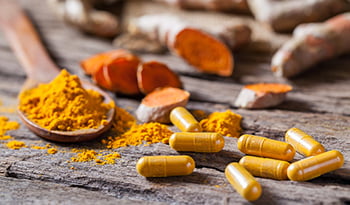Beef Liver Supplement Benefits
OŚWIADCZENIENiniejszy blog nie ma na celu diagnozowania...
- W tym artykule:
- What Is the Liver?
- Beef Liver’s Nutrient Profile
- Health Benefits of Beef Liver Supplements
- Incorporating Raw Beef Liver into Your Diet
- Why Beef Liver Supplements Are Gaining Popularity
- Risks and Side Effects
- Tips for Supplementing with Beef Liver
- The Bottom Line

In the world of superfoods, one often thinks of fruits, vegetables, and exotic berries. However, an unsung hero has fallen out of favor in recent years—beef liver. While its unique taste may not be for everyone, its many health benefits make it a compelling addition to any diet.
Beef liver supplements are becoming increasingly popular as they offer a convenient and powerful way to obtain the nutritional benefits of this organ meat. This article will explore the potential health benefits of beef liver, a nutrient-dense superfood. We will also address common concerns and offer practical tips for incorporating beef liver supplements into your daily routine.
What Is the Liver?
The liver, a vital organ in humans and animals, plays a crucial role in processing food, storing essential nutrients, and detoxifying the blood. As an organ meat, liver stands out as a superfood due to its low-calorie, high-nutrient content, making it a healthier alternative to traditional muscle meats like steak and burgers.
Beef liver contains greater levels of vitamins and nutrients. Furthermore, organ meat can be a more cost-effective alternative to red meat, making it an ideal option for optimal nutrition.
Beef Liver’s Nutrient Profile
Beef liver is rich in several important nutrients listed below
Rich in Essential Nutrients
A 3.5-ounce serving of beef liver is a nutritional powerhouse, providing more than 100% of the Recommended Daily Intake (RDI) for various essential nutrients. These include Vitamin B12, Vitamin A,riboflavin (B2), folate (B9), iron, copper, and choline. These nutrients play an important role in supporting immune function, energy production, and maintaining healthy skin, eyes, and blood. This abundance of nutrients makes the liver stand out among other food sources.
Vitamin A for Better Vision
One of the key attractions of beef liver is its exceptionally high Vitamin A content. A 3-ounce serving of liver meets the daily vitamin A requirement, promoting good vision and possibly improving immunity. However, it's crucial to note that excessive intake of Vitamin A can lead to toxicity, so moderation is key.
High-Quality Protein for Strong Muscles
With 17 grams of protein in a 3-ounce serving, beef liver is an excellent protein source. The high-quality protein found in beef liver contains all essential amino acids, contributing to weight loss, appetite reduction, increased metabolic rate, and muscle preservation during weight loss.
Calorie Comparison
The liver emerges as one of the most nutrient-dense foods per calorie. Compared to commonly consumed muscle meats like sirloin steak or lamb chop, beef liver provides superior nutrition with fewer calories and less fat. This characteristic makes the liver an excellent choice for those aiming to maintain a nutrient-rich diet while managing calorie intake.
Health Benefits of Beef Liver Supplements
Beef Liver Supplementation may have several important health benefits when taken regularly. Learn about them below.
Improved Energy Levels and Development
Beef liver supplements are a natural source of B vitamins, such as B12, folate, thiamine, riboflavin, and niacin. In addition to converting food into energy, these vitamins support lower blood pressure, healthy fetal development during pregnancy, and proper neurological function. Regular intake of beef liver supplements may contribute to increased energy levels, making them a go-to option for those combating fatigue and low energy.
Enhanced Immune Function
With a powerful combination of vitamin A, zinc, and copper, beef liver supplements can significantly boost immune function. Vitamin A is essential in keeping the skin and mucous membranes healthy, as it acts as the primary defense against harmful pathogens. Zinc and copper, on the other hand, are vital for immune cell function and antioxidant protection.
Iron Boost for Healthy Blood and Anemia Prevention
Iron deficiency anemia is a common nutritional concern worldwide. Beef liver supplements are an excellent source of heme iron, which is found in animal tissues and is more easily absorbed by the body than non-heme iron found in plant sources. For instance, a 3-ounce serving of beef liver provides half of the recommended daily amount of iron for men and one-fifth for women.
Iron is crucial for producing hemoglobin, which helps transport oxygen in the body and aids in muscle development. Therefore, beef liver supplements can be a valuable addition for people who are at risk of iron deficiency.
Supports Brain Health
The B vitamins present in beef liver supplements, particularly B12 and B6, are essential for maintaining cognitive function and preventing neurological disorders. Adequate intake of B vitamins supports the production of neurotransmitters, which is crucial in regulating mood and improving overall mental health.
Skin, Hair, and Nail Health
The rich concentration of vitamin A in beef liver supplements contributes to skin health by promoting cell turnover and collagen production. In turn, this results in healthier skin, hair, and nails, as well as reduced signs of aging.
Incorporating Raw Beef Liver into Your Diet
Despite the rising popularity of the carnivore diet, consuming raw beef liver is not advisable due to potential bacterial contamination, including salmonella, E. coli, or Campylobacter. Cooking to the USDA-recommended internal temperature of 160 degrees Fahrenheit is essential.
Additionally, soaking it in milk for 30 to 60 minutes is recommended to make beef liver more palatable. This not only reduces bitterness but also neutralizes acidity. Ground liver can be added to ground beef for burgers or sautéed with oil, onions, garlic, and bacon for a flavorful dish.
Why Beef Liver Supplements Are Gaining Popularity
Beef liver supplements have been gaining popularity in recent years due to various factors, reflecting a growing awareness of their nutritional benefits and a shift towards holistic approaches to health.
Some people who don’t like the taste or texture of beef liver can take beef liver supplements to reap its benefits. In addition, beef liver supplements provide a convenient alternative to consuming fresh or cooked organ meats regularly. The portability and ease of use of supplements appeal to individuals with busy lifestyles who may find it challenging to source and prepare organ meats consistently.
Risks and Side Effects
While beef liver supplements offer a wealth of nutrients, some concerns have been raised about potential risks, primarily related to vitamin A toxicity and cholesterol content. It's essential to consume these supplements in moderation and be mindful of individual health conditions.
Cholesterol and Toxin Concerns
Despite concerns about cholesterol content, research indicates that the cholesterol in food, including beef liver, is not a primary cause of heart disease for most individuals. Additionally, the liver does not store toxins; instead, it processes and eliminates them. Therefore, concerns about liver toxins are unfounded, making it a safe and nutritious choice.
Vitamin A Toxicity
Vitamin A is a fat-soluble vitamin, and excessive intake can lead to toxicity, causing symptoms such as nausea, dizziness, and even more severe health issues. However, the risk is generally associated with consuming very high amounts over extended periods. It's crucial to follow recommended dosage guidelines and consult with a healthcare professional, especially if you are pregnant or have pre-existing liver conditions.
Gout Concerns
Individuals with gout, a type of arthritis, should be mindful of their beef liver consumption due to its high purine content, which contributes to uric acid formation. However, for those without gout, beef liver consumption is generally safe, with dietary factors accounting for a minimal percentage of gout cases.
Iron Overload
While beef liver supplements are an excellent source of heme iron, excessive iron intake can lead to iron overload, causing symptoms like fatigue, joint pain, and organ damage. Individuals with a predisposition to iron overload conditions should consult with a healthcare professional before incorporating beef liver supplements into their routine.
Sourcing Matters
Not all beef liver supplements are created equal. The quality of the source matters, as supplements derived from pasture-raised, grass-fed animals are generally considered more nutrient-dense and free from potential contaminants. Always choose reputable brands with transparent sourcing practices.
Tips for Supplementing with Beef Liver
For those interested in reaping the benefits of beef liver supplements, here are some practical tips for incorporating them into your daily routine
Start Slow
It's best to begin with a lower dosage if you're new to beef liver supplements. Gradually increase the amount based on your tolerance and health goals.
Pair with Balanced Meals
Incorporate beef liver supplements into balanced meals to enhance nutrient absorption. Consider pairing them with a variety of vegetables, whole grains, and other nutrient-rich foods for a well-rounded approach to nutrition.
Choose High-Quality Supplements
Opt for reputable brands that source their beef liver from grass-fed, pasture-raised animals. This ensures a higher quality of nutrients and minimizes the risk of potential contaminants.
The Bottom Line
Beef liver, often overshadowed in modern diets, emerges as a nutritional powerhouse worthy of attention. With its diverse array of essential nutrients, protein richness, and lower calorie density, beef liver offers a compelling alternative to traditional muscle meats.
Beef liver supplements are a convenient and potent way to tap into the nutritional powerhouse of this organ meat. Loaded with essential vitamins and minerals, these supplements provide numerous health benefits, from supporting energy production to enhancing cognitive function and immune support. While concerns about vitamin A toxicity and cholesterol content exist, they can be mitigated through moderation and informed consumption.
As with any supplement, it's crucial to approach beef liver supplements with mindfulness and consideration for individual health conditions. By integrating them into a balanced diet and consulting healthcare professionals, you can unlock the nutritional power of beef liver and take a proactive step toward optimizing your overall well-being.
References:
- Calkins BM, Lillegard JB, Veum TL, et al. Fetal Programming of Body Composition: Relation between Birth Weight and Body Composition Measured with Dual-Energy X-ray Absorptiometry and Anthropometric Methods in Older Englishmen. Am J Clin Nutr. 2010;92(4):944-949. doi:10.3945/ajcn.2010.29469
- Cleveland Clinic. How to Add More Iron to Your Diet. https://health.clevelandclinic.org/how-to-add-more-iron-to-your-diet/. Published March 15, 2023. Accessed December 13, 2023
- Cleveland Clinic. Is Beef Liver Good for You? https://health.clevelandclinic.org/beef-liver-benefits. Published July 5, 2023. Accessed December 11, 2023
- Hansson J, Galanti MR, Hergens MP, Fredlund P, Ahlbom A, Alfredsson L, Bellocco R, Eriksson M, Grill V, Lindblad P, Toren K. Snus (Swedish Smokeless Tobacco) Use and Risk of Stroke: Pooled Analyses of Incidence and Survival. J Intern Med. 2009 Nov;266(5):441-51. doi: 10.1111/j.1365-2796.2009.02126.x
- Healthline. Why Liver Is a Superfood. https://www.healthline.com/nutrition/why-liver-is-a-superfood#TOC_TITLE_HDR_5. Published June 7, 2017. Accessed December 10, 2023
- Li Y, Lei P, Luo Z, et al. Precise gene modification mediated by TALEN and single-stranded oligodeoxynucleotides in human cells. PLoS One. 2011;6(10):e26087. doi:10.1371/journal.pone.0026087.
- Linus Pauling Institute, Oregon State University. Copper. https://lpi.oregonstate.edu/mic/minerals/copper. Published July 2023. Accessed December 13, 2023
- National Institutes of Health, Office of Dietary Supplements. Folate - Health Professional Fact Sheet. https://ods.od.nih.gov/factsheets/Folate-HealthProfessional/. Published November 20,, 2022. Accessed December 12, 2023
- National Institutes of Health, Office of Dietary Supplements. Iron - Health Professional Fact Sheet. https://ods.od.nih.gov/factsheets/Iron-HealthProfessional/. Published June 15, 2023. Accessed December 12, 2023
- National Institutes of Health, Office of Dietary Supplements. Vitamin A - Health Professional Fact Sheet. https://ods.od.nih.gov/factsheets/VitaminA-HealthProfessional/. Published June 15, 2022. Accessed December 12, 2023
- National Institutes of Health, Office of Dietary Supplements. Vitamin B12 - Health Professional Fact Sheet. https://ods.od.nih.gov/factsheets/VitaminB12-HealthProfessional/. Published December 22, 2022. Accessed December 12, 2023
- West AR, Oates PS. Mechanisms of heme iron absorption: Current questions and controversies. World J Gastroenterol. 2008 Jul 14;14(26):4101-4110. doi: 10.3748/wjg.14.4101. PMID: 18636652; PMCID: PMC2725368
- Zhang J, Wang X, Li M, et al. Omega-3 fatty acids protect renal functions by increasing docosahexaenoic acid-derived metabolite levels in SHR. J Hypertens. 2008 Nov;26(11):2083-93. doi: 10.1097/HJH.0b013e32830b5f2a

 Autor: Dr. Andrea Colon, N.M.D.
Autor: Dr. Andrea Colon, N.M.D.


